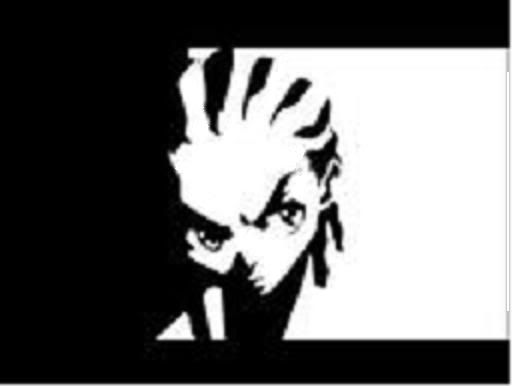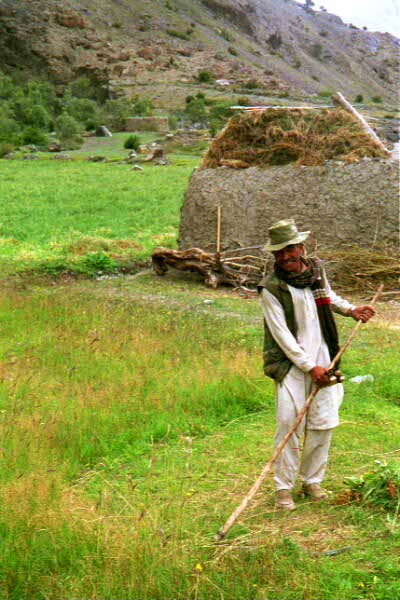


Notice: This is the official website of the All Empires History Community (Reg. 10 Feb 2002)
Remote Eastern Iranian Languages |
Post Reply 
|
| Author | |||
Afghanan 
Chieftain 

Durr e Durran Joined: 12-Jun-2005 Location: United States Online Status: Offline Posts: 1098 |
 Quote Quote  Reply Reply
 Topic: Remote Eastern Iranian Languages Topic: Remote Eastern Iranian LanguagesPosted: 01-Dec-2005 at 22:35 |
||
|
Shugni-Yazgulami The Shughni, Sarikoli and Yazgulyam languages belong to the Shugni-Yazgulami sub-branch. There are about 60,000 speakers of Shughni in Tajikistan and Afghanistan (including the dialects of Rushani, Oroshani, Bartangi, Oroshor, Khufi and Shughni). As of 1982, There were about 20,000 speakers of Sarikoli in the Sarikol Valley of southwest Xinjiang Province, China. Shughni and Sarikoli are not mutually intelligible. In 1994, There were 4000 speakers of Yazgulyam along the Yazgulyam River in Tajikistan. Yazgulyam is not written. Munji The Munji language is closely related to Yidgha, and in 1992 There were around 2500 speakers in the Munjan and Mamalgha Valleys of northeastern Afghanistan. Sanglechi-Ishkashimi There are about 2500 speakers of Sanglechi-Ishkashimi in Afghanistan and Tajikistan (dialects: Sanglechi, Ishkashimi, Zebaki). Sanglechi-Ishkashimi is not a written language. Wakhi There are around 29,000 speakers of the Wakhi language in Pakistan, Tajikistan, China, and possibly still in Afghanistan. Yidgha There are about 6000 speakers of Yidgha in Pakistan. Yidgha is closely related to the Munji language of Afghanistan. |
|||
|
The perceptive man is he who knows about himself, for in self-knowledge and insight lays knowledge of the holiest.
~ Khushal Khan Khattak |
|||
 |
|||
Afghanan 
Chieftain 

Durr e Durran Joined: 12-Jun-2005 Location: United States Online Status: Offline Posts: 1098 |
 Quote Quote  Reply Reply
 Posted: 01-Dec-2005 at 22:39 Posted: 01-Dec-2005 at 22:39 |
||
|
Scholars attest that after Bactrian was further established in the Hindu Kush, many variants of the language existed and developed unique and seperate from Bactrian. When the region of Bactria was overwhelmed by Arabs and their Persian speaking descendants (who changed Parsi into Farsi) Bactrian was becoming an extinct language and quickly replaced with "Farsi." Meanwhile in the isolated valleys of the Hindu Kush, the Eastern Iranian derivatives of Bactrian remained relatively unchanged and the languages developed uniquely different. When ancient manuscripts of Bactrian were found, scholars were amazed as to how many words in Bactrian were used by different speakers of related languages. |
|||
|
The perceptive man is he who knows about himself, for in self-knowledge and insight lays knowledge of the holiest.
~ Khushal Khan Khattak |
|||
 |
|||
Zagros 
Emperor 
Suspended Joined: 11-Aug-2004 Online Status: Offline Posts: 8792 |
 Quote Quote  Reply Reply
 Posted: 02-Dec-2005 at 04:44 Posted: 02-Dec-2005 at 04:44 |
||
|
Very good thread Afghanan, I believe Iran also had many archaic pockets like this too before Reza Shah. I will add Persian for comparison to your list: Afghanistan Afghaanestaan Sen (could be arabic) Bozorg, dorosht
Seeb Tarik (dark), meshki (black), sia (black) Baradar Chahar Panj Chaghoo, kart Che Vakht (direct translation to Persian would be "what moment?"), Kei? |
|||
 |
|||
Alborz 
Earl 
Joined: 02-Nov-2005 Online Status: Offline Posts: 256 |
 Quote Quote  Reply Reply
 Posted: 02-Dec-2005 at 07:59 Posted: 02-Dec-2005 at 07:59 |
||
|
I just wanted to add this. |
|||
|
"Who so shall worship Ahura Mazda, divine blessing will be upon him, both while living and when dead" Darius The Great

|
|||
 |
|||
Cyrus Shahmiri 
Administrator 

King of Kings Joined: 07-Aug-2004 Location: Iran Online Status: Offline Posts: 6240 |
 Quote Quote  Reply Reply
 Posted: 02-Dec-2005 at 12:55 Posted: 02-Dec-2005 at 12:55 |
||
Similar Persian words are Saal (Age) and Gunda (Large). |
|||

|
|||
 |
|||
Guests 
Guest 
|
 Quote Quote  Reply Reply
 Posted: 04-Dec-2005 at 08:21 Posted: 04-Dec-2005 at 08:21 |
||
|
Chaqu is probably turkic in origin, I we got it from the seljuks.
Vaqt is arabic. Another word for black in persian is Zang. And ultimately Avghan(erroneous called afghan today) is a persian word and lent to other nearby languages. The british however populized the word. |
|||
 |
|||
Afghanan 
Chieftain 

Durr e Durran Joined: 12-Jun-2005 Location: United States Online Status: Offline Posts: 1098 |
 Quote Quote  Reply Reply
 Posted: 04-Dec-2005 at 10:26 Posted: 04-Dec-2005 at 10:26 |
||
|
The word Avghan was used in Sanskrit before Persian. The first Persian occurence was in the form of "Abgan" in Sassanian inscriptions.
|
|||
|
The perceptive man is he who knows about himself, for in self-knowledge and insight lays knowledge of the holiest.
~ Khushal Khan Khattak |
|||
 |
|||
Cyrus Shahmiri 
Administrator 

King of Kings Joined: 07-Aug-2004 Location: Iran Online Status: Offline Posts: 6240 |
 Quote Quote  Reply Reply
 Posted: 04-Dec-2005 at 12:41 Posted: 04-Dec-2005 at 12:41 |
||
|
Both Chaqu and Vaqt are definitely Persian words, Chaqu comes from old Persian word Chakuch which means "hammer" and Vaqt from Vakta (time).
|
|||

|
|||
 |
|||
Guests 
Guest 
|
 Quote Quote  Reply Reply
 Posted: 04-Dec-2005 at 18:20 Posted: 04-Dec-2005 at 18:20 |
||
|
Ahla Al-Awqat, means the best of times wich is a
popular phraze in arabic. Awqat is plural form of vaqt. Or are you
suggesting that the word was borrowed by the arabs? And chaqu being a
derivate of chakush is a bit far fetched.. But I will give you the
benefit of doubt as I havent double checked my info... but I will
tomorrow.
edit/ I checked now. Sorry you are wrong on both of the words. I checked Farhang Farsi Amid Edited by Shompis |
|||
 |
|||
Guests 
Guest 
|
 Quote Quote  Reply Reply
 Posted: 04-Dec-2005 at 18:43 Posted: 04-Dec-2005 at 18:43 |
||
Source? Not that I dont believe you. But I would like to know more as I thought that the word is pratisthana in sanskrit, wich ultimately hindis pathan comes from. Edited by Shompis |
|||
 |
|||
Afghanan 
Chieftain 

Durr e Durran Joined: 12-Jun-2005 Location: United States Online Status: Offline Posts: 1098 |
 Quote Quote  Reply Reply
 Posted: 04-Dec-2005 at 19:06 Posted: 04-Dec-2005 at 19:06 |
||
|
Click Here for the discussion on All Empires on the Origins of the Afghans: http://www.allempires.com/forum/forum_posts.asp?TID=4051& ;PN=2 |
|||
|
The perceptive man is he who knows about himself, for in self-knowledge and insight lays knowledge of the holiest.
~ Khushal Khan Khattak |
|||
 |
|||
Cyrus Shahmiri 
Administrator 

King of Kings Joined: 07-Aug-2004 Location: Iran Online Status: Offline Posts: 6240 |
 Quote Quote  Reply Reply
 Posted: 06-Dec-2005 at 10:45 Posted: 06-Dec-2005 at 10:45 |
||
|
As I mentioned here about Vachir (Vizier/Minister), "va-" is a prefix for emphasizing (for example did=see & vadid=visit), Gtah (Modern Persian Gah [Gahnameh=Calendar]) means "Time" (Zaman in Arabic), so Vagta/Vakta also means "Time/Occasion".
I have Amid, Moin and Dehkhoda Perisan dictionaries, all of them have mentioned that Chaqu comes form Chakuch, I think the Turkish word for Knife is "Bisak". |
|||

|
|||
 |
|||
erci 
Chieftain 

Joined: 22-Jun-2005 Online Status: Offline Posts: 1426 |
 Quote Quote  Reply Reply
 Posted: 06-Dec-2005 at 12:28 Posted: 06-Dec-2005 at 12:28 |
||
|
no it's not bisak it's bı�ak(bichak)
also similar words �aki (Chaki) small pocket knife) and �eki�(chekich) hammer bı�ak(bichak) derives from bi�+mak = "to saw" or "to cut" |
|||
 |
|||
Guests 
Guest 
|
 Quote Quote  Reply Reply
 Posted: 12-Dec-2005 at 18:48 Posted: 12-Dec-2005 at 18:48 |
||
Lets just say that we agree that we disagree as I do not acknowledge any of that. Also language is studied on a genetic level. |
|||
 |
|||
Zagros 
Emperor 
Suspended Joined: 11-Aug-2004 Online Status: Offline Posts: 8792 |
 Quote Quote  Reply Reply
 Posted: 12-Dec-2005 at 19:15 Posted: 12-Dec-2005 at 19:15 |
||
|
What do you mean, "language is on a genetic level"?
|
|||
 |
|||
Afghanan 
Chieftain 

Durr e Durran Joined: 12-Jun-2005 Location: United States Online Status: Offline Posts: 1098 |
 Quote Quote  Reply Reply
 Posted: 14-Dec-2005 at 11:46 Posted: 14-Dec-2005 at 11:46 |
||
|
Wakhi Girl in China (Called Locally in Chinese as Tajiks)
Wakhi Children in China
Wakhi Child
Wakhi Farmer
|
|||
|
The perceptive man is he who knows about himself, for in self-knowledge and insight lays knowledge of the holiest.
~ Khushal Khan Khattak |
|||
 |
|||
Afghanan 
Chieftain 

Durr e Durran Joined: 12-Jun-2005 Location: United States Online Status: Offline Posts: 1098 |
 Quote Quote  Reply Reply
 Posted: 13-Sep-2008 at 21:03 Posted: 13-Sep-2008 at 21:03 |
||
|
*Bump
|
|||
|
The perceptive man is he who knows about himself, for in self-knowledge and insight lays knowledge of the holiest.
~ Khushal Khan Khattak |
|||
 |
|||
Post Reply 
|
| Forum Jump | Forum Permissions  You cannot post new topics in this forum You cannot reply to topics in this forum You cannot delete your posts in this forum You cannot edit your posts in this forum You cannot create polls in this forum You cannot vote in polls in this forum |
Copyright ©2001-2009 Web Wiz
This page was generated in 0.059 seconds.











 Printable Version
Printable Version Google
Google Delicious
Delicious Digg
Digg StumbleUpon
StumbleUpon Windows Live
Windows Live Yahoo Bookmarks
Yahoo Bookmarks reddit
reddit Facebook
Facebook MySpace
MySpace Newsvine
Newsvine Furl
Furl Topic Options
Topic Options







